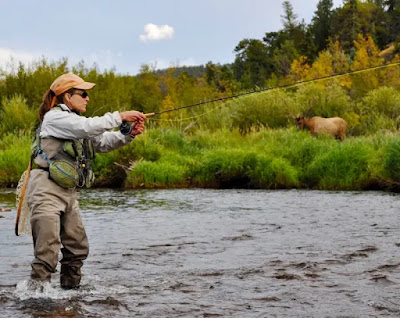 |
| Ahead, the sawyer searches for the lost trail while others clear saplings and logs. |
I spent Saturday with a volunteer trail crew rebuilding a trail in the Wet Mountains, a process that we began last summer.
Post-wildifre erosion, followed by a lush growth of grass and aspen, and erased the trail in places. Jeff Outhier, the San Isabel National Forest's "master of trails," marked a new route where the old one been washed out by the normally tiny creek.
When I hiked there before the fire in 2016, I mentally subdivided it into three sections: The Ravine, The Wall, and The Summit Aspen Groves.
Last summer's work was mostly in The Ravine and partway up The Wall.
The Wet Mountains lack craggy, snowy summits, being mostly below timberline, but they excell in steepness. Somebody with a GPS measured a 2300-foot gain in altitude in about a mile and a half (?).
Summit ridges tend to be gentler and fine for just strolling, once you are up there.
Here, the summit ridge had offered big aspen groves, probably created by a long-ago forest fire that took out the white fir, douglas fir, and ponderosa pine.
 |
| Loppers for small aspens and conifers. The aspens, being clones, will come back eventually, Job security! |
The groves, in turn, burned again six years ago, and now show dead standing dead trunks (until the wind blows them all down) and an understory of saplings that make foot travel difficult. Sometimes I think I can find the old trail most easily by shuffling my feet around in the leaf litter.
And then, mid-afternoon, we call it a day, and it's down down down, an hour's walk (with a break). Maybe by this time next year we will have the whole trail rebuilt.
About those shirts: I could not decide if I felt like an early-seaon deer hunter or a county jail inmate on work-release.

